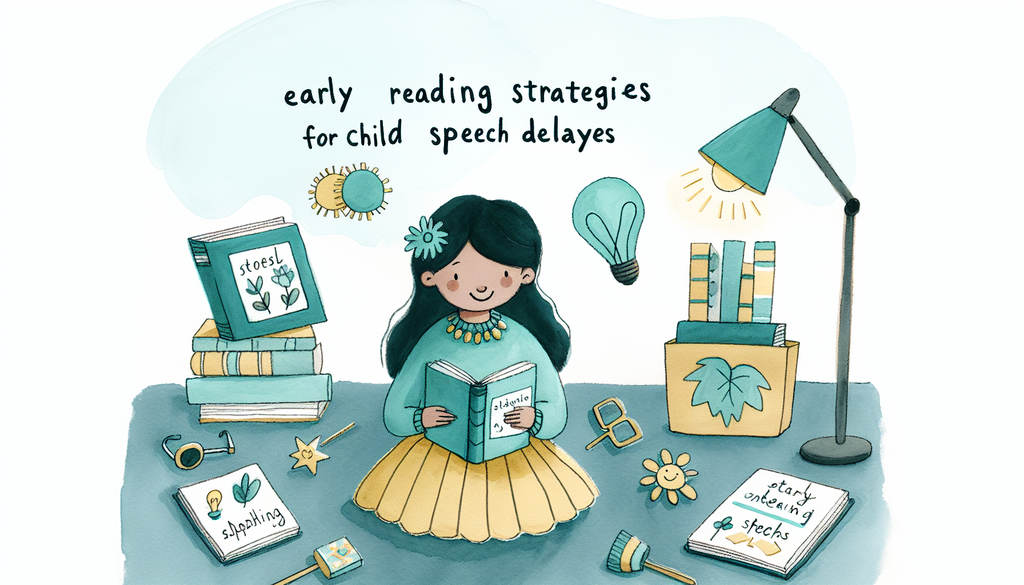Early Reading Strategies for Children with Speech Delays

Children with speech and language delays often face hurdles in developing early reading skills. However, with the right strategies, parents and educators can help these children overcome challenges and improve their reading abilities. In this post, we’ll share some effective strategies to facilitate early reading skills for children with speech and language delays.
Fostering a Love For Reading
Instilling a love for reading often starts by reading aloud to your child. Celebrate the process of reading by showing your excitement, using dramatic expressions, and involving your child as much as possible. Ask them to point to certain pictures, repeat words, or even predict what’s going to happen next.
Reading Material Selection
Choose reading materials that align with your child’s interests. It could be books about their favorite animals or characters. For children with speech delays, books with repetition or predictable text might be easier to understand. The goal is to make reading an enjoyable and meaningful experience for them. Consider starting with picture books and slowly introducing books with simple words and sentences over time.
Sound and Letter Awareness
Introduce your child to the sounds of different letters. You can use visual supports such as flashcards and educational games. As your child hears and sees the letters, they’ll start to make connections between the sounds and the corresponding letters.
Word Games
Play games that emphasize speech and language skills. Try simple games like “I Spy,” where you describe something and your child has to guess what it is. You could also play word games like rhyming or breaking words into syllables. These games will help to strengthen their phonological awareness, a critical component of early reading skills.
Fingers and Pointers
Children with speech delays often benefit from tracking words with their finger or a pointer as they read. This visual and tactile guidance helps to associate specific words with their pronunciations and meanings.
Literacy-Based Therapy
Consider literacy-based speech therapy where the therapist uses books in treatment to target both speech and language goals. In our previous post Understanding Dyscalculia: Supporting Children with Math Difficulties, we discussed how combining different learning elements can enhance children’s understanding.
Consistency and Patience
Persistence, consistency, and patience are key when supporting a child with speech delays. Remember that each child is unique and may progress at their own pace. Whether it’s implementing the strategies mentioned above or trying an approach like art to enhance their skills, as discussed in our earlier article Using Art to Enhance Academic Skills for Children with Disabilities, being patient and consistent can contribute significantly to your child’s success.
Seeking Professional Help
If you find it difficult to aid your child in reading due to their speech delays, don’t hesitate to seek professional help like speech therapists. They are trained to use effective strategies tailored to each child’s need to aid language development and early reading skills.
It’s important to remember that developing reading skills is a process and each child will progress at their own pace. If you have concerns about your child’s speech or language development, the sooner you get help, the better. In our previous post The First Signs: Recognizing Giftedness in Young Children, we highlighted the importance of early intervention. This is equally important for children with developmental delays.
By implementing these strategies, we hope to equip parents and educators with tools to support children with speech delays cultivate their reading skills from an early stage.
Remember, every child is unique in their abilities and an early reading success story might look different for each child. However, with a supportive environment and learning experiences suited to their individual needs, each child can thrive.
Keep following our blog for more insights, solutions, and discussions on prevalent issues related to special and gifted education.